'Jupiter Ascending' came out 10 years ago, and we're still not sure how The Matrix creators' space opera went so wrong
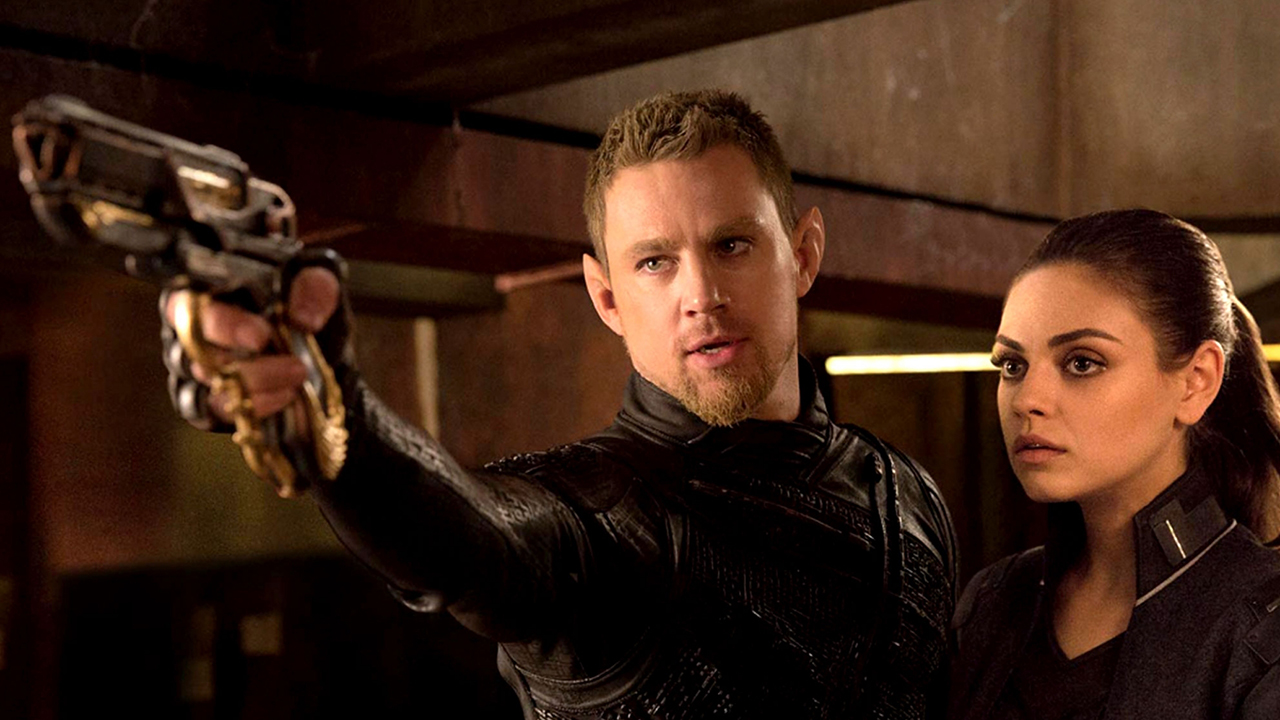
Breaking space news, the latest updates on rocket launches, skywatching events and more!
You are now subscribed
Your newsletter sign-up was successful
Want to add more newsletters?

Delivered daily
Daily Newsletter
Breaking space news, the latest updates on rocket launches, skywatching events and more!

Once a month
Watch This Space
Sign up to our monthly entertainment newsletter to keep up with all our coverage of the latest sci-fi and space movies, tv shows, games and books.

Once a week
Night Sky This Week
Discover this week's must-see night sky events, moon phases, and stunning astrophotos. Sign up for our skywatching newsletter and explore the universe with us!

Twice a month
Strange New Words
Space.com's Sci-Fi Reader's Club. Read a sci-fi short story every month and join a virtual community of fellow science fiction fans!
Whenever someone brings up Lana and Lilly Wachowski's body of work, The Matrix is always at the center of the conversation. Maybe Speed Racer and Cloud Atlas get some mentions thanks to their vocal followers, but their spacefaring epic Jupiter Ascending is typically swept under the rug. A critical and financial disaster, most people wouldn't blame you for forgetting about it. And that's a shame because we believe there are enough reasons after 10 years to give it a rewatch with new eyes.
Sometimes, it's great to step away from the best sci-fi movies of all time and watch some middling, or even downright bad movies. It's enriching, giving you a better understanding of the medium as well as a renewed appreciation for the audiovisual masterpieces that did manage to land their shots.
Space operas are a notoriously difficult genre to nail. Sure, there are fantastic examples of what happens when it goes right, but for every Star Wars or Dune there are a dozen cataclysmic big-screen misfires. Some of them are pure awful, but others have discernible hints of genius lost amidst all the narrative rubble and CGI noise. Enter Jupiter Ascending.
Millennia-spanning human dynasties that harvest planets to make their lives longer, a human whose genes were spliced with a space wolf's, reincarnation backed by hokey, half-explained science... Jupiter Ascending isn't an easy sell, but behind the weak story is some excellent world-building, and it's exactly the sort of 'bad movie' that's worth revisiting.
The bad: An eye-rolling, too-wordy tale for a new universe
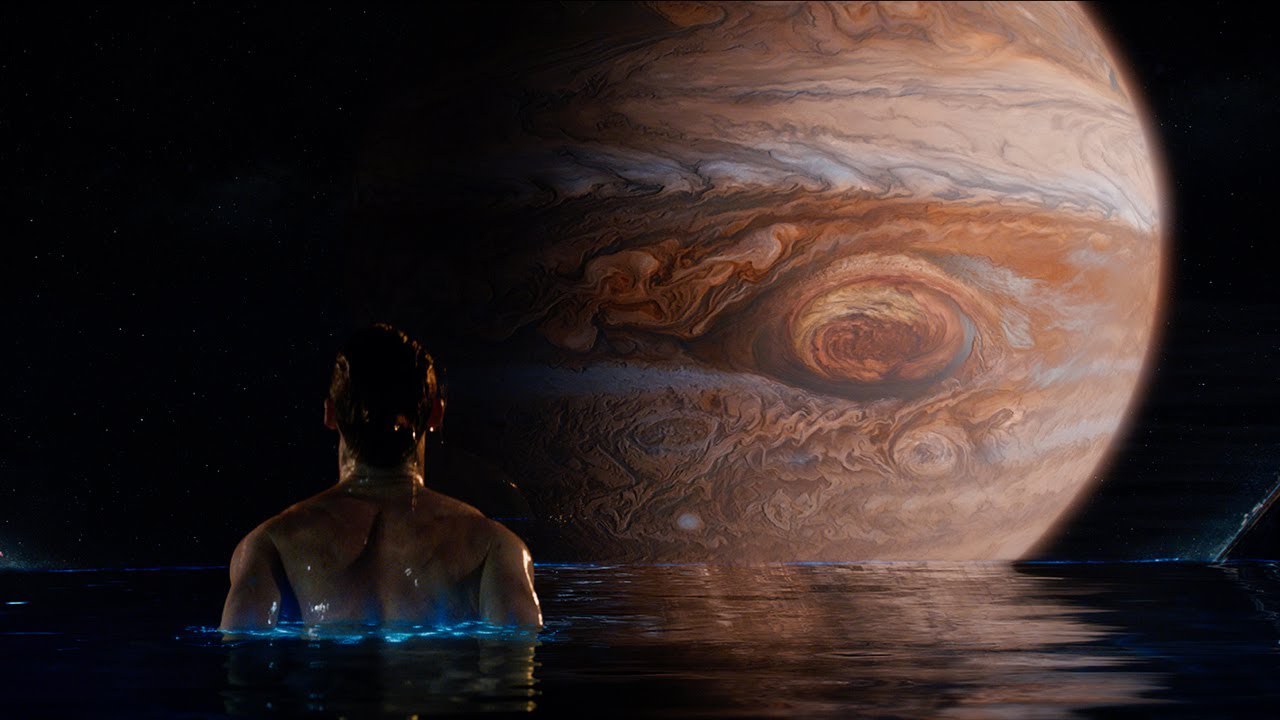
Jupiter Ascending spends far too much time yapping about market disputes and profits while failing to present a compelling narrative built around it. The story orbits around Jupiter Jones (Mila Kunis), who was named by her astronomer father after the famous gas giant. Her dull, aimless life in Chicago as a cleaner who's stuck with her relatives is the opposite of special though.
Despite the classic Cinderella setup and colorful sci-fi universe, the Wachowskis' script is smothered by half-baked exposition and infighting, centered around the highly profitable business of 'harvesting' developed worlds for 'youth serum' the extraterrestrial elites use to live for thousands of years.
Add overblown family matters that come and go (at least two major villains are entirely dropped and never brought up again) to the mix and you've got a muddled mess of a plot.
Breaking space news, the latest updates on rocket launches, skywatching events and more!
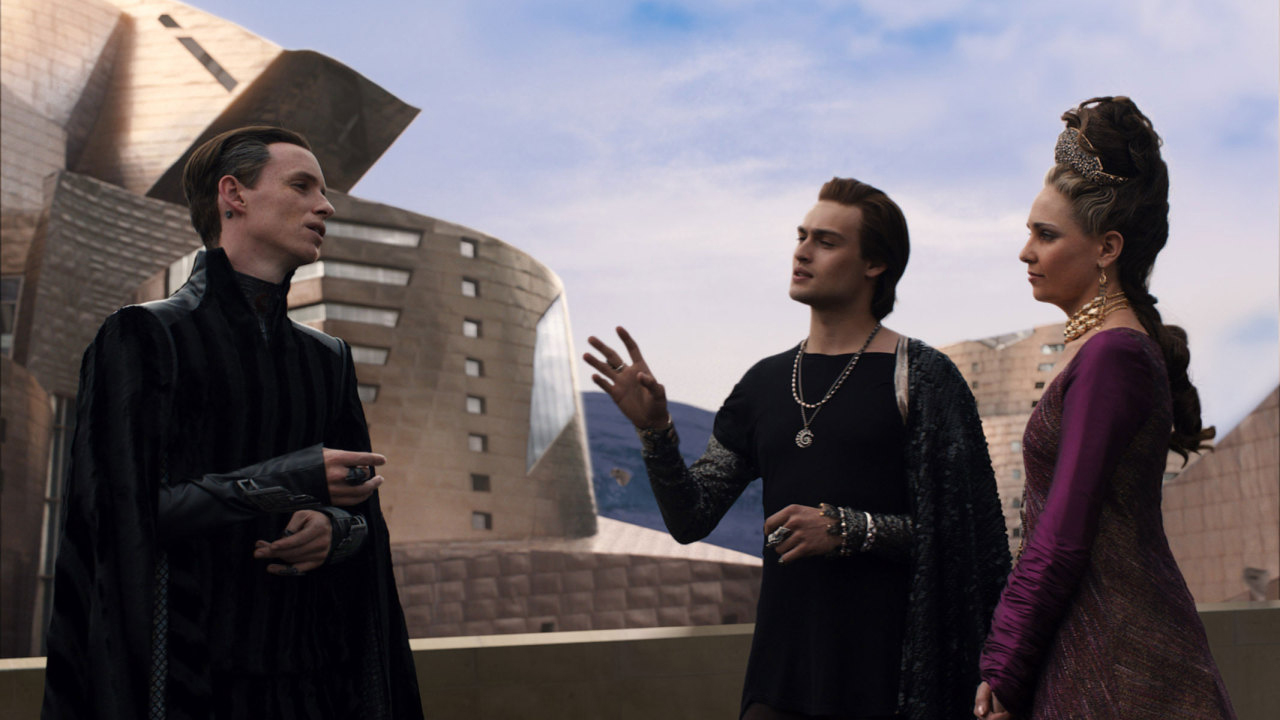
By comparison, even the much-maligned Star Wars: The Phantom Menace – another space adventure far too concerned with the markets and galactic politics – feels focused and tight. As breezy as the aforementioned fish-out-of-water setup sounds, Jupiter's odyssey repeatedly gets bogged down by busy work and seemingly endless descriptions of a vast, rich universe that we barely get to see for ourselves.
There are some baffling tonal shifts between goofy sci-fi and high drama and the whole thing just takes too long to get going, spending much of its runtime plodding around on Earth. Combine that with an oversaturation of set pieces and we're left with precious little time to spend with our main characters.
The good: A feast for the eyes and ears with a distinct style
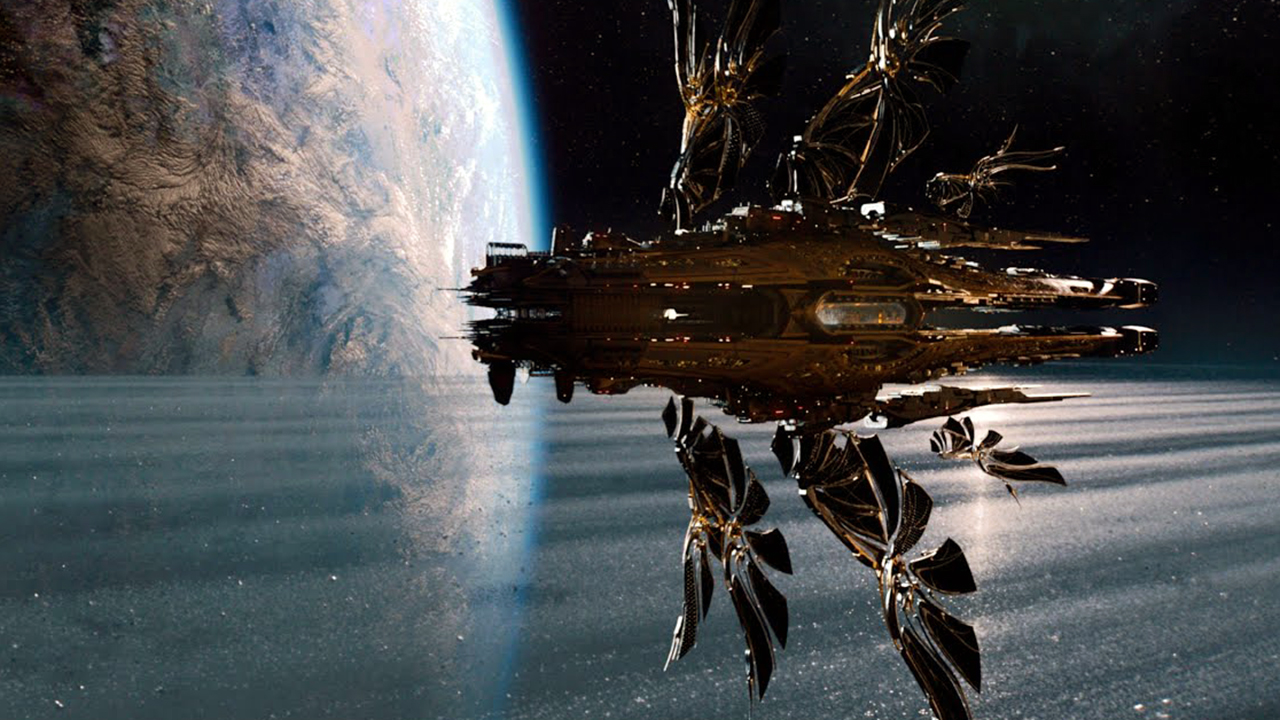
Despite its shortcomings, you can't deny that Jupiter Ascending continues to be a gorgeous movie. The CGI work has its ups and downs, sure, but the Wachowskis traditionally excel at making fantasy come to life and this is no exception. Many would even argue the 'overly digital' look of their post-Matrix movies is a feature and not a bug. Their works, no matter the setting, could be considered the opposite of grounded, with high saturation and vibrant lighting working well in tandem with the exuberant sets, costumes, and shiny spaceships of their space opera to create an ethereal, dreamlike world. If you're looking for tangible realism in Jupiter Ascending, you're watching it wrong.
Luc Besson's Valerian's (2017) took a similar approach to creating a stunning sci-fi universe, and received a similar critical response of "nice visuals, shame about everything else." In a post-Avatar world, it's easy to notice which filmmakers felt inspired by a blue behemoth that dethroned even Star Wars at the box office. Does it all work? Not by a long shot. In fact, many characters and locales in Jupiter Ascending sadly have an 'overbudgeted Fifth Element' aura that probably wasn't what the Wachowskis (nor the director of photography John Toll) were going for.
To the surprise of no one, unmistakable big-name composer Michael Giacchino gave this space odyssey his all. The original soundtrack isn't just a good accompaniment; it almost sells the entire thing on its own. It's playful, classical, and even menacing when it needs to feel weighty. After giving the equally divisive John Carter at Disney a good push in 2012, his expertise yielded similar results here. It's an enchanting score that deserves a much better movie behind it.
The middling: A cast that was adrift in deep space
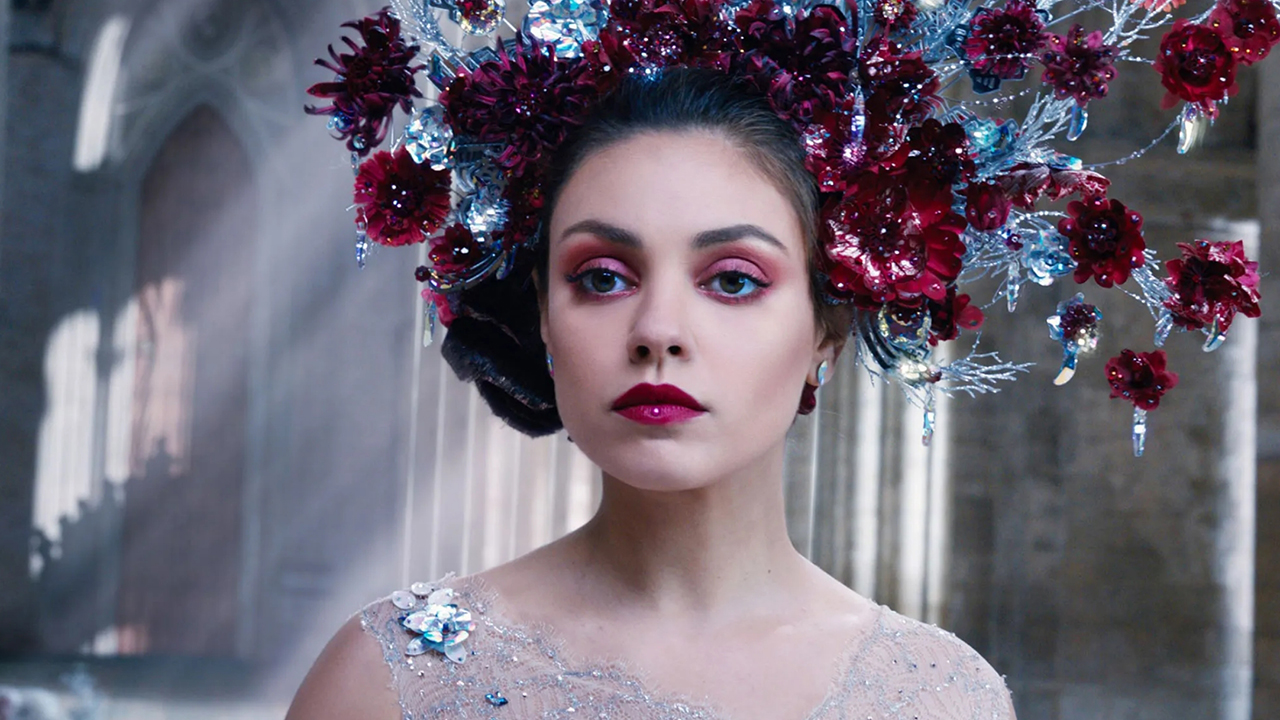
Much was written back in 2015 about the movie's surprising cast and a decade on it still holds true. Despite an interesting background, Channing Tatum as Caine Wise never makes a strong impression beyond his CG-powered fight moves and the fact that he's hot and the lead wants him. Things get worse when you pay too much attention Kunis, who's stumbling her way through bland lines and chroma-keyed rooms; her reaction to aliens being real and having seriously unnerving plans for Earth is… tepid to say the least.
It's not all bad though. The ever-reliable Sean Bean turns a no-small amount of exposition and campy 'fallen hero' dialogue into gold with his gravitas alone. Douglas Booth and Tuppence Middleton also bring the right amount of bite to roles that I'm not sure even they understood well. But perhaps the highlight of the movie, whether you dig the interpretation or not, is Eddie Redmayne's turn as manic villain Balem Abrasax, the gnarliest of the three siblings vying for control of Earth and Jupiter's support (since she's a genetic 'recurrence' of their long-deceased mother and matriarch). Some might argue he was 'too much' in this one, but that's pure cowardice; he read the room and swung for the fences.
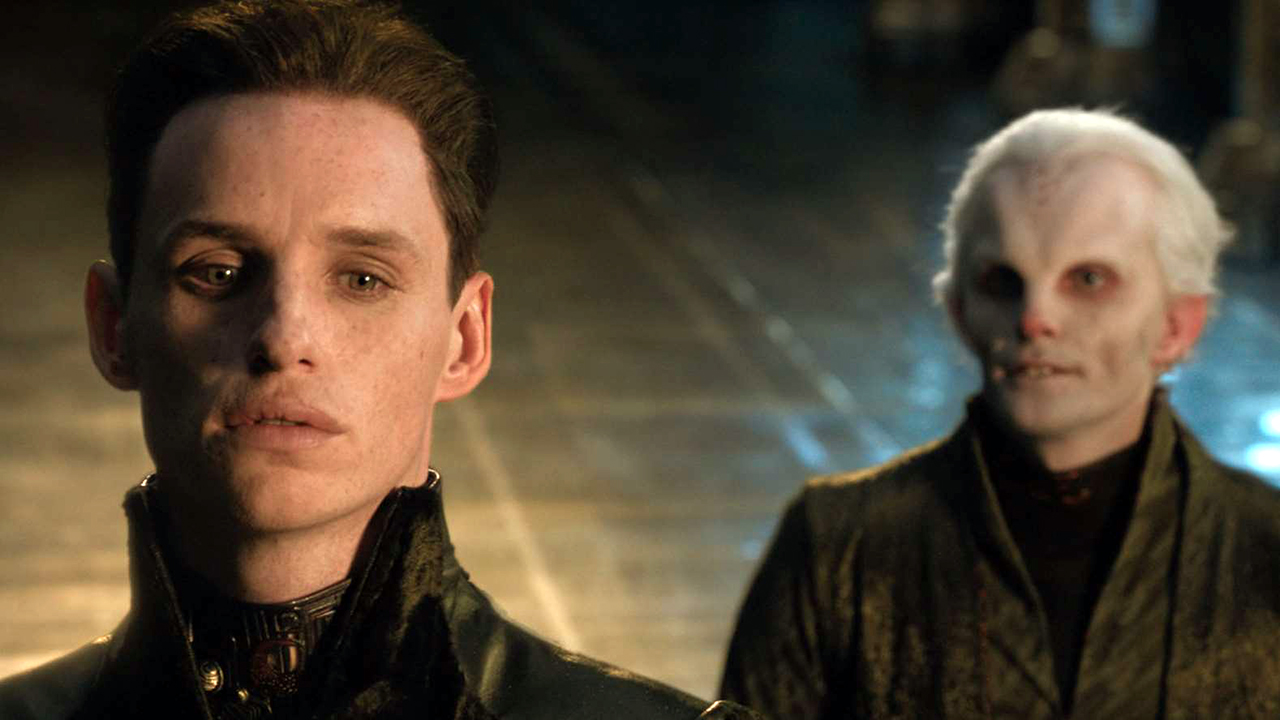
You can't help but applaud the audacity of the movie when a tense, dramatic sequence cuts to a 'space cop' elephant man trumpeting in excitement as everyone around him is worried to death. That's the sort of stuff that Star Wars easily pulled off back in 1977 by accident. But, when so much of Jupiter Ascending is going for a grand and self-serious, almost Game of Thrones-ish energy at times, these scenes are harder sells. We do love the gloomy dragon-man goons that use the 'mister' title though.
So, were we wrong about Jupiter Ascending? That's for each casual viewer, cinephile, and critic to decide. It has some remarkable positives and a passionate vision, that's for sure. But getting through its rougher patches and ignoring the misguided decisions remains challenging.
Perhaps time will be kind to Jupiter Ascending as we're bombarded with far duller franchise flicks and uninspiring hogwash, but it's still too soon to start with the 'Jupiter Ascending was great, actually' posts.
Fran Ruiz is our resident Star Wars guy. His hunger for movies and TV series is only matched by his love for video games. He got a BA of English Studies, focusing on English Literature, from the University of Malaga, in Spain, as well as a Master's Degree in English Studies, Multilingual and Intercultural Communication. On top of writing features and other longform articles for Space.com since 2021, he is a frequent collaborator of VG247 and other gaming sites. He also serves as associate editor over at Star Wars News Net and its sister site, Movie News Net.

